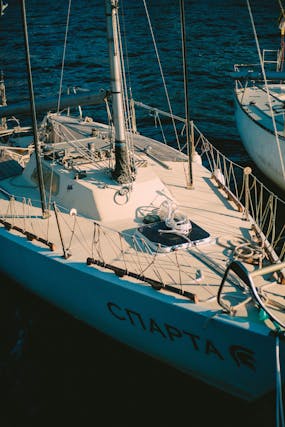Choosing the Right Anchor – A Key Decision in Preserving Your Boat’s Prime Condition

For boat owners, preserving their vessel’s prime condition is paramount. Whether it’s a leisurely cruise or a challenging voyage, anchoring plays a pivotal role in ensuring safety and security. However, selecting the appropriate anchor isn’t just about convenience—it’s about safeguarding your investment and maintaining your boat’s integrity.
Understanding Anchor Types
Anchors come in various types, each suited for different seabeds and conditions. The most common types include plow, fluke, claw, and mushroom anchors. Plow anchors are excellent for sandy and muddy bottoms, while fluke anchors perform well in rocky or weedy areas. Claw anchors provide versatility across different seabeds, while mushroom anchors are ideal for calm, inland waters.
Consider Your Boat’s Size and Weight
The size and weight of your boat directly influence the type and size of anchor needed. Larger vessels require heavier anchors to ensure adequate holding power. Conversely, smaller boats can manage with lighter anchors. Exceeding the recommended weight can strain your boat’s anchor system and potentially damage your vessel.

Evaluate Holding Power
The primary function of an anchor is to hold your boat securely in place, even in adverse conditions. Assessing an anchor’s holding power involves understanding its design, weight distribution, and holding mechanism. Opting for anchors with high holding power ensures stability during storms or strong currents, reducing the risk of drifting or dragging.
Consider Ease of Deployment
Efficient deployment and retrieval are essential for hassle-free anchoring. Choose anchors that are easy to handle and deploy, especially if you often sail solo or with a small crew. Features such as quick-release mechanisms or collapsible designs can streamline the anchoring process, saving time and effort.
Assess Durability and Corrosion Resistance
Saltwater environments pose a significant threat to metal anchors, leading to corrosion and degradation over time. Investing in anchors made from durable materials such as galvanized steel or stainless steel enhances longevity and performance. Regular maintenance, including rinsing with fresh water after use and periodic inspections, further prolongs the lifespan of your anchor.
Factor in Storage and Stowage
Storage space aboard your boat is limited, making compact and stowable anchors desirable. Foldable or collapsible anchors are convenient for boats with minimal storage options, allowing you to maximize available space. Additionally, choosing anchors with protective coatings or storage bags prevents damage to other onboard equipment and ensures safe stowage.

Consult Expert Advice
When in doubt, seek guidance from experienced sailors, marine experts, or reputable dealers. At Riviera Marine Centre, we pride ourselves on offering the best boat anchor services to ensure your vessel’s safety and security. With our expertise and commitment to excellence, we provide top-of-the-line anchor options tailored to your specific needs and preferences. Trust us to anchor your boat with confidence and reliability.
Selecting the right anchor is a crucial decision for boat owners, influencing safety, performance, and the longevity of your vessel. By considering factors such as anchor type, boat size, holding power, ease of deployment, durability, and expert advice, you can make an informed choice that preserves your boat’s prime condition. Remember, investing in a reliable anchor is not just about securing your boat—it’s about safeguarding your sailing adventures.